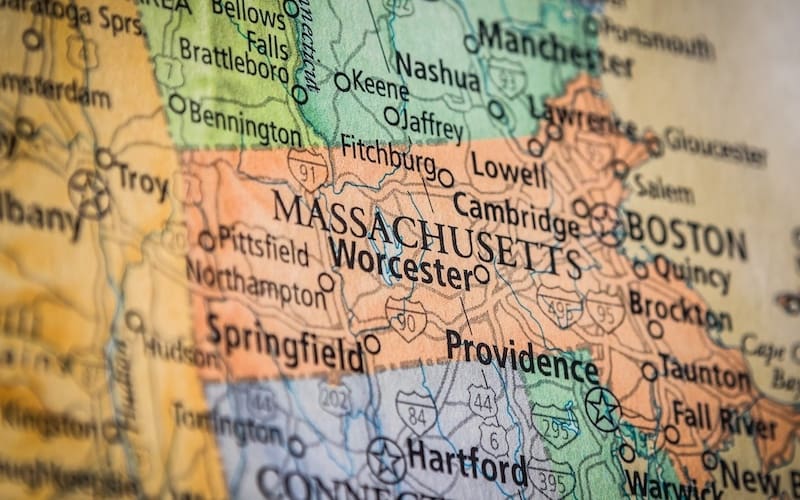
States have the right to protect the health and welfare of residents when Congress has ceded the role. Photo: Shutterstock
The Trump administration is recklessly propelling the nation backward, especially when it comes to the environment.
That’s why it came as no surprise when it recently issued yet another of its ill-conceived executive orders, this one directing the Department of Justice to challenge state laws aimed at cutting carbon pollution and promoting clean energy.
But states are onto this game. The Trump administration has launched an all-out legal attack on states’ authority to set climate change policy, but the president has come to the fight presuming to hold powers he just doesn’t have. Our federal system gives states the right to protect their citizens’ health and welfare when Congress hasn’t already passed a law that does the same thing. And in the case of climate, it unfortunately has not. That’s why we’re urging state and local leaders to remain steadfast in pursuing environmental and climate change policies they know will improve the health of the planet, our region, and their residents.
In fact, this is the moment to double down, no matter how much the president threatens. It’s never been more apparent what role states must play in moving forward to protect the environment. They must work together proactively to pick up the ball the Trump administration has dropped. Indeed, many New England states have already taken bold steps to combat climate change.
Here are six more actions states should take right now to counter the Trump administration’s damaging, regressive, and counterproductive policies.
Pass climate superfund laws.
When Trump issued his executive order against policies that mention “climate change,” “environmental justice,” and “greenhouse gas” emissions, he specifically called out climate superfund laws like those on the books in Vermont and New York. In fact, this month, the U.S. Department of Justice actually sued both states in a bid to shield Big Oil from the states’ new climate superfund laws. Vermont’s law was the first in the nation to hold large fossil fuel polluters accountable for the extreme weather their products cause. After Vermont passed its law last year, followed by New York, several other New England states have proposed similar superfund laws, including Maine, Connecticut, Massachusetts, and Rhode Island.
The Trump administration is moving fast to attack climate superfund laws for one reason: they work.
Climate superfunds are a highly effective mechanism for coping with the devastating extreme weather caused by climate change. Instead of families and businesses struggling alone to rebuild a home or business after a supercharged storm barrels through a town, fossil fuel companies, the very entities responsible for climate change, would have to help pick up the tab. Taxpayers could get relief from huge storm repair bills that will only grow in the coming years. And the fossil fuel companies responsible for all the damage would have to use some of the billions they rake in by peddling oil and gas to clean up the mess they caused.
Reject new gas pipelines and fossil fuel infrastructure.
Last February, the Trump administration met with the governor of Connecticut to discuss bringing more polluting fossil fuels into the state. Along with Trump’s executive orders aimed at reinvigorating the dirty, dying, and expensive coal industry, it was just another example of some wrong-headed thinking.
News flash: In the world of energy, the switch has flipped. It is now much cheaper and more efficient to build renewables like solar and wind than to invest in dirty coal and gas. So why would we want to? Coal, gas, and oil are obsolete 20th-century technologies, and we now have better choices.
That’s why New England should continue to build more solar and wind capacity, and New Hampshire should reject bills like HB504, which seeks to shift the state’s energy policy in favor of fossil fuels. The future lies in cleaner technologies that are much less expensive to build and run.
Stand up for clean energy.
The Trump administration is doing its utmost to turn back the clock on clean energy. The irony is that clean energy has been going strong. Solar, wind, and hydropower were among the renewables that made up 51% of power generation nationally in March 2025. Fossil fuels accounted for 49%. It’s the first time fossil fuels accounted for less than half of the country’s power generation over a whole month.
This shows us that clean energy is indeed viable and it works. States must stay the course by passing, maintaining, and implementing laws and policies supporting clean energy projects. In Maine, a bill aimed at achieving 100% clean electricity for the state by 2040 is exactly the bold leadership we need. The bill promises a practical path forward to a lower-cost energy future and a strong clean energy economy.
Fund clean energy legislation when the feds won’t.
It’s not enough to pass laws. You have to fund them, too. Too often, states pass groundbreaking laws but leave them unfunded, so they never get implemented. States must back their boldest ideas with the dollars to turn them into life-changing action.
Around New England, we already see more states getting this point. In Vermont, legislators are pushing to fund the state’s groundbreaking climate superfund law. In Rhode Island, lawmakers are working to fund people’s ability to intervene in Public Utility Commission and Energy Facility Siting Board proceedings. And, in Connecticut, legislators are urging the funding of networked geothermal heating systems as federal funds get slashed.
This shouldn’t stop. We can expect no help from the Trump administration, so states will have to become more creative at finding funding on their own.
Safeguard clean air and water.
The Trump administration has ordered the EPA to “sunset” many environmental protections. That means that in addition to dropping energy appliance standards and permitting offshore drilling, the administration may attempt to weaken the Clean Air Act, Safe Drinking Water Act, and the Clean Water Act.
The EPA’s latest fumble is on drinking water regulations on PFAS, otherwise known as “forever chemicals.” Those chemicals have been linked with serious health issues, including cancer, heart disease, and stroke. The EPA has been unclear about exactly where it stands on PFAS (EPA administrator Lee Zeldin once fought to keep PFAS out of drinking water while representing a New York’s congressional district in Congress). It has threatened to roll back Biden’s regulations limiting PFAS in drinking water, while also broadly saying it will tackle PFAS contamination. But states don’t have to let the EPA’s murky standards slip by unaddressed. In fact, New Hampshire and other New England states have already moved to ban toxic forever chemicals from products when they are intentionally added. Other states need to follow suit in beefing up regulations to protect against forever chemicals, but also against other pollution that threatens our air and water.
Protect vulnerable communities.
Under President Trump, environmental justice is on the chopping block. The Trump administration is attempting to dismantle federal programs targeting historical and ongoing pollution and health disparities.
But as with so many of his executive orders, he can only threaten so much. States can exercise their unique constitutional authority to take on plenty of initiatives on their own to lessen disparities and make communities healthier. And indeed they are taking action. Connecticut is considering developing transit-oriented housing and fare-free bus rides for high school students and veterans. Massachusetts is talking about electrifying commuter rail and improving pedestrian and bike paths. Rhode Island is fighting for environmental justice legislation, while Maine is fighting landfills that disproportionately impact the Wabanaki Tribes. Massachusetts and Rhode Island want to hold polluters accountable through bottle bills.
Though he may not want to acknowledge it, Trump is not a king. We don’t have kings in America, and presidents cannot rule by executive order alone. State laws can counter the administration’s cruel, chaotic, and thoughtless policies. States can seize the power granted by our Constitution to protect their citizens and the environment. They can continue to work toward a clean environment, economic justice, racial equity, and representative democracy. When it comes down to it, states have long taken the lead in making the cutting-edge changes that lead to lasting change, no matter who occupies the White House. Now is no different.
The Trump administration may be ready to return to the Stone Age, but the people of New England don’t have to follow it there.



